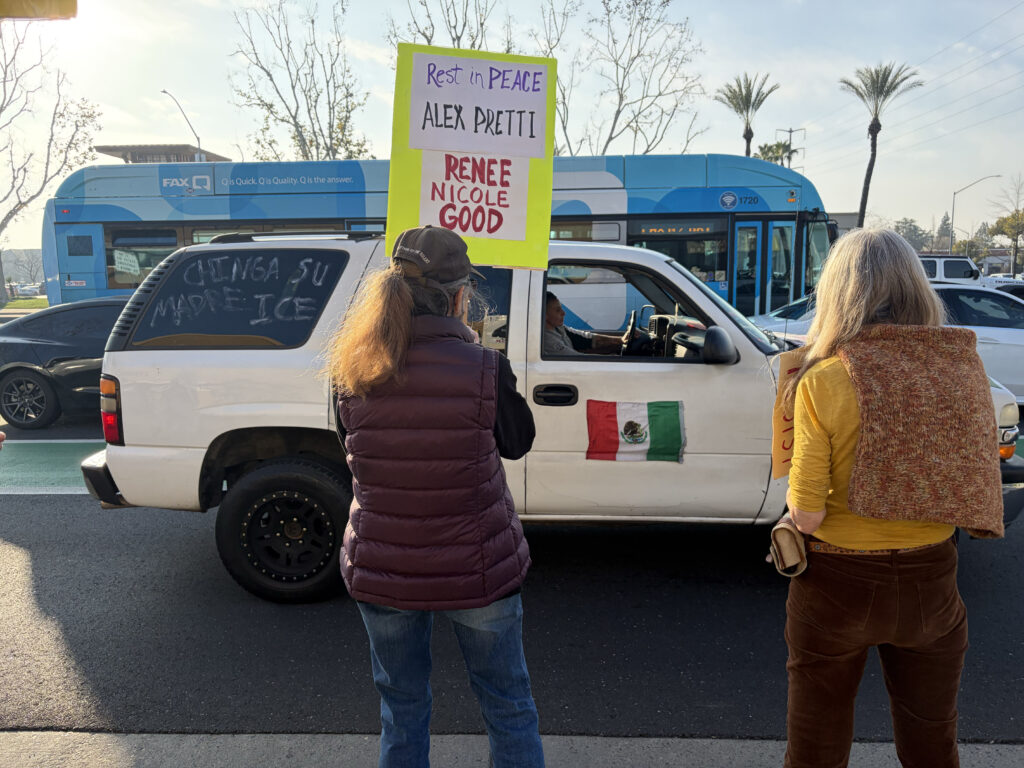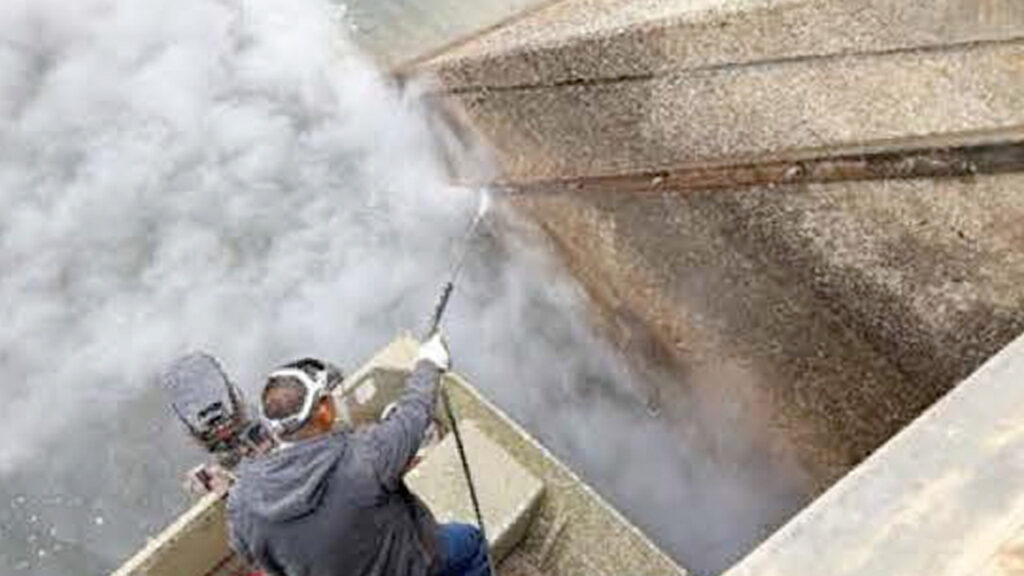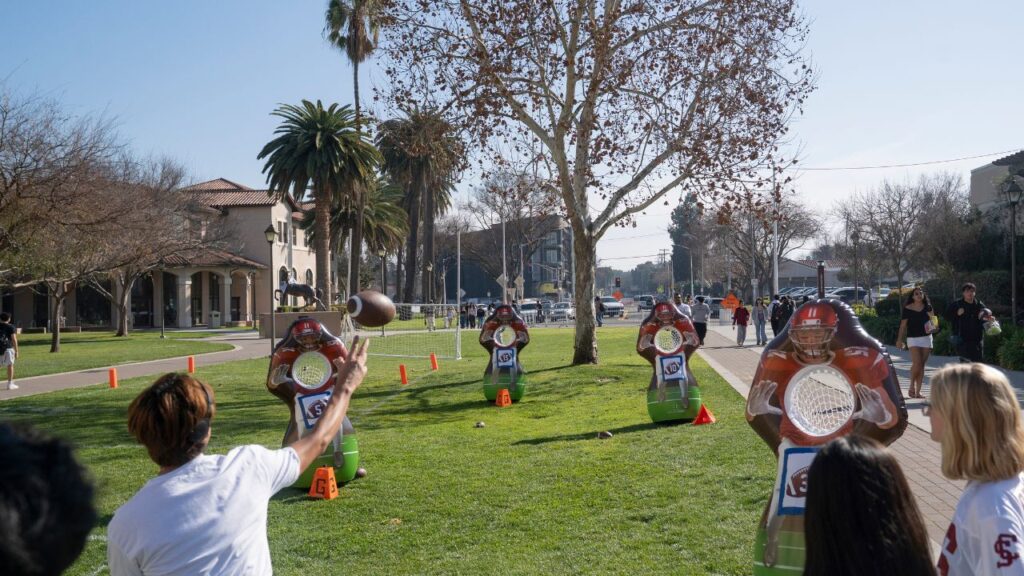A farm manager advocates for maintaining California's Low Carbon Fuel Standard to support sustainable dairy practices and rural communities. (CalMatters/Larry Valenzuela)

- California dairy farms are innovating to reduce greenhouse gases, water usage, and fossil fuel consumption while increasing milk production.
- The Low Carbon Fuel Standard program is crucial for making digester projects economically viable and helping dairies meet methane reduction goals.
- Direct regulation of dairy farms could force small operations out of business, impacting rural communities and the state's sustainable farming practices.
Share
|
Getting your Trinity Audio player ready...
|

Sal Rodriguez
CalMatters
Opinion
California’s farm families are really good at innovating to solve problems. I am proud to be a part of it.
I was born in the Central Valley and raised by immigrant parents. My work started when I was just a child helping my father, a farm manager, with odd jobs on the farm where he worked and where my family lived. Today, I am a farm manager at Bar 20 Dairy in Fresno County, where I have worked for the past 16 years.
In my career, I have seen a lot of progress made to farm more sustainably. California dairy farms are producing more milk with fewer cows, producing less greenhouse gases and using less water, fewer fossil fuels, less pesticides, and commercial fertilizers.
You can see this innovation at our farm, which has been nationally and internationally recognized for leadership in sustainability. We’ve electrified our farm equipment, installed solar, use wearable monitoring devices for tracking cow health and so much more.
Related Story: Could Biden Declare Shaver Lake a National Monument and ‘Completely ...
Digesters: A Key to Sustainable Farming
An important way Bar 20 Dairy has been able to make a difference for the environment and community has been the addition of a digester. It allows our farm to capture methane emissions and produce renewable, combustion-free electricity using fuel cells. A portion of the biogas is also being used to produce 100% renewable hydrogen that will soon be fueling local transit buses.
California’s Low Carbon Fuel Standard, or LCFS, program also plays a vital role in this success by making digester projects economically feasible. As the California Air Resources Board prepares to vote on an LCFS update next week, it is important that they stay the course. Misguided efforts to preclude dairy participation in the LCFS program, eliminate avoided methane crediting or directly regulate dairy methane reduction will only force more dairy farms to consider leaving the state and taking their sustainable practices with them.
Our innovative partnerships have helped create new models to accelerate the adoption of climate-smart practices globally, and helping clean the air in our community.
Related Story: California Voters Consider Controversial Vacation Homes Tax in Iconic Lake ...
Incentive-Based Approach Proves Effective
None of this would have been possible without the methane-reduction initiatives provided by the state. A recent analysis by CARB confirmed that the current incentive-based approach is working. By allowing farms like ours to implement either a digester or alternative manure management project via the state’s dairy methane reduction programs, California’s dairy sector is on track to achieve its world-leading 40% methane reduction goal by 2030.
Local residents and communities support our efforts, too. A recent survey on farming issues found that 65% of registered California voters and 72% of voters in the San Joaquin Valley oppose having the state directly regulate dairy farms and eliminating the current incentives.
Unfortunately the San Joaquin Valley is already seeing far too many dairies going out of business because of increasing costs and regulations. Without incentives, dairy farms, especially small farms, will not be able to adopt methane reduction projects. In a recent report from the California Cattle Council, economists agreed that direct regulation would cause more small dairies to go under, more operations to leave our state, and more jobs taken away from hardworking people.
Related Story: California Deputy’s Swift Action Saves Child from Oncoming Train
Losses to this industry will continue to be felt the hardest in rural communities.
For people like me, dairy farms provide more than wholesome milk and dairy foods — they provide my entire way of life. I love the work I do, and I can’t imagine living anywhere else or not having a strong local dairy industry.
California dairies are leading the way by producing milk in the most sustainable ways possible. To continue this important progress, they need an ongoing commitment to the incentives that have been proven to work for farmers, rural residents and the state.
About the Author
Sal Rodriguez is a dairy farm manager in Fresno County.
Make Your Voice Heard
GV Wire encourages vigorous debate from people and organizations on local, state, and national issues. Submit your op-ed to bmcewen@gvwire.com for consideration.



















